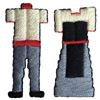 There are many speculations about Emirati traditional clothing these days. In particular, about local women wearing hijabs, special burqa masks, and other headwear that covers the face. But actually, there is a good reason for such accessories, just as for some of the men’s clothing articles. For instance, do you know the second functional reason to use an agal, special cord that holds the male headscarf in place? It is exciting how every part of Emirati national costume has its purpose and cultural background.
There are many speculations about Emirati traditional clothing these days. In particular, about local women wearing hijabs, special burqa masks, and other headwear that covers the face. But actually, there is a good reason for such accessories, just as for some of the men’s clothing articles. For instance, do you know the second functional reason to use an agal, special cord that holds the male headscarf in place? It is exciting how every part of Emirati national costume has its purpose and cultural background.
Thanks to Sheikh Mohammed Centre for Cultural Understanding for the info
Emirati male outfits
The traditional Emirati wear is called “kandura”. It helped people adapt to the environment. This is exactly the equivalent to wearing a usual business suit by Europeans. It’s just an Emirati version of wearing a suit. So, it is a formal clothing piece. Kandura is tailored and it's made out of thin cotton fabric – very suitable to the local hot weather.
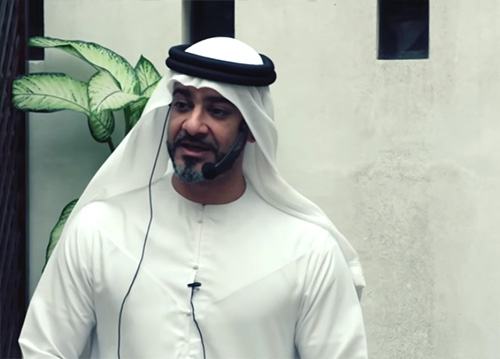
If to talk about a more casual costume, youngsters use the so-called “hamdaniyah” headdress of a sporty-style, wrapping the cloth around the head. The robe is pretty much the same, but the headwear is different and locals can tell the difference at once.
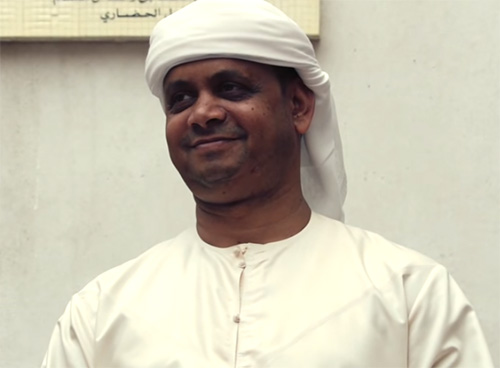
So, the formal headdress in the UAE consists of a headscarf called “ghutrah” and a piece called “agal”. The agal is traditionally made out of goat and sheep wool and it holds the headscarf in place.
The agal has two functions, two benefits behind it. One of the functions, as we’ve mentioned, is to hold the cloth in place. Another function for it is to padlock the camel's leg. Owning a camel in the old days was a privilege, like owning a Ferrari. The agal used to be very flexible because of the material it’s made from. The Emirati man would twist this cord in a certain way and then place it on the camel’s leg so that the animal could no longer run away.
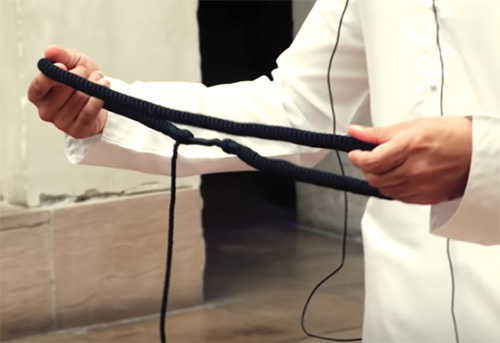
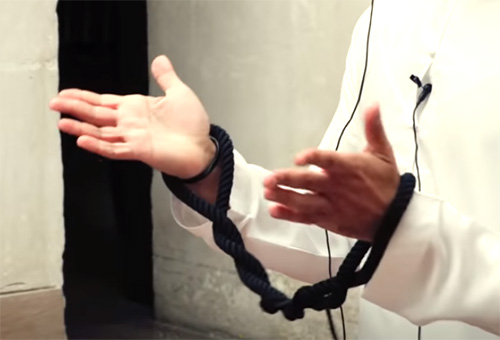
And now let’s talk about the ghutrah. It is used by males of any class, profession, or age. But there are some peculiarities. For instance, in the past, the governmental officials wore red&white ghutrah, while the others wore white headscarves. That's how they could differentiate between the officials and ordinary citizens. Nowadays, Emirati men can choose any color they wish.

Under the ghutrah, the local men have a so-called “taqiyah”. You can also call this the “anti-slip hat” because, by wearing this, they keep the whole headgear in place. Muslims also use this cap during the Friday noon prayer time – they would wear this and go to perform the prayer.
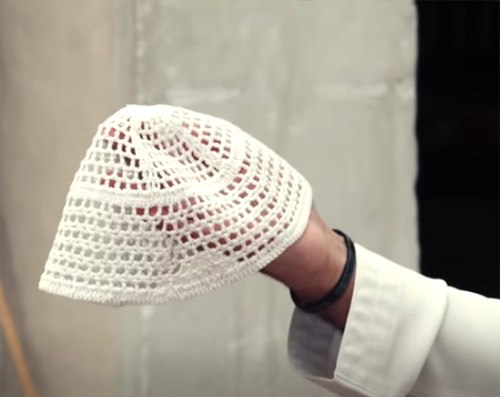
And one more very important item of the Emirati traditional male dress is called a “tarboosh”. It can be easily attached and reattached when needed. The tarboosh has an interesting story behind it. In the older days, Arab men were often involved in the pearl business that would keep them away from their homes for 2-6 months. And women would dip the tarboosh in incense and place it for their husbands in the kanduras. So when homesick, men would simply sniff the tarboosh and refresh and remember their family.

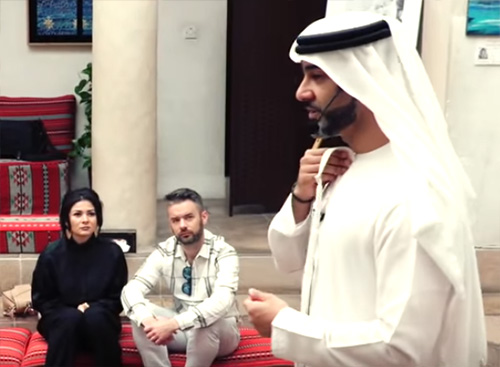
Emirati female outfits
Why do women wear black? Let’s find out.
Women in the UAE wear a garment called “abaya”. It is a loose robe worn over other clothes, it covers the person from head to toe. By wearing the abaya, she only covers whatever she's actually wearing inside. Emirati women – believe it or not – could be wearing exactly the same clothing as any other woman. They could be wearing sleeveless outfits, they could be wearing shorts – no one will notice what she's actually wearing inside.
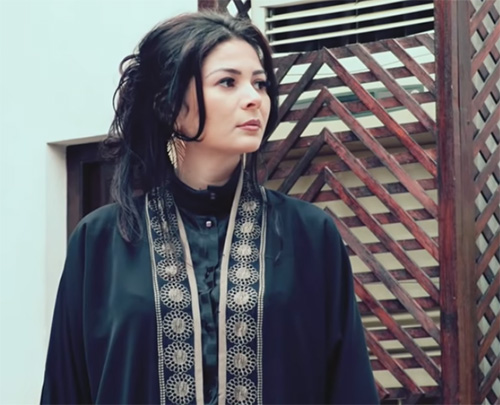
The next garment is called “shayla”. It is wrapped around the head and covers the shoulders. The Muslim religion asks Emirati women to cover their hair. The fabric for shayla is very thin, you can easily see through it but once it is worn, it becomes completely non-transparent. And that's why women actually prefer wearing a darker color.

The abaya was actually introduced to the UAE by the Iranians and Persians. In the past, Emirati women didn’t use this garment. They used to wear the same robe as men and it was also called “kandura”. Female kandura traditionally was patterned and prettily adorned.
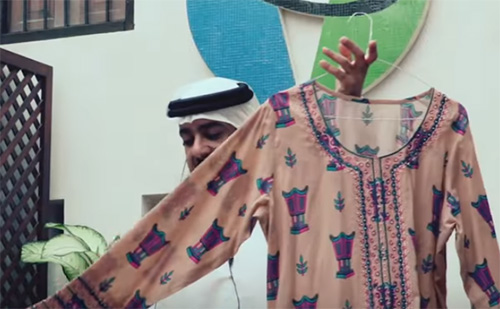
There is another curious accessory worn by Emirati women. It is called a “burqa” and is a face mask worn underneath the niqab to ease breathing and protect the face. Emirati women would place the burqa on the face and it creates sort of a barrier that keeps the fabric of the niqab from sticking to the skin. Also, this mask serves as a protection from the sun for the face’s high burning points – the very first parts that get a sunburn are cheeks, nose, and forehead.
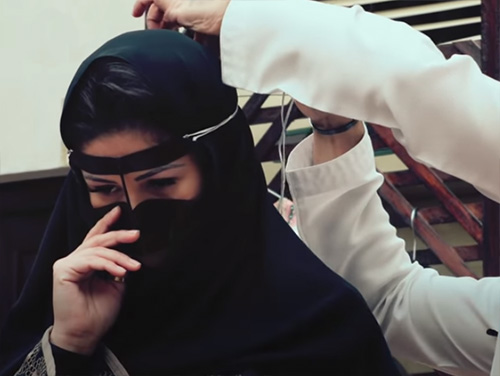
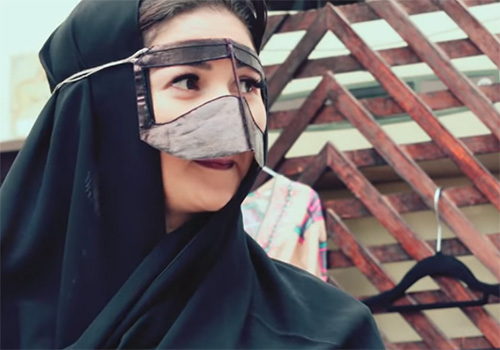
We’ve mentioned a niqab earlier. So what’s that?
The niqab is a small garment that covers the face and shields the wearer from dust and heat. It was invented for that purpose. Traditionally, religion didn’t ask women to cover their faces. But today, some people and some media turned Emirati head coverings into something to oppress women. Though, originally it wasn’t like this. The locals in the UAE say that this is purely a choice of a woman whether to cover her face or not.
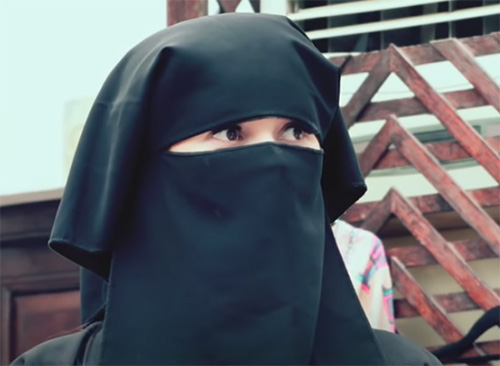
(c)
